Learning and development in the early years of a child’s life sets the foundation for their future trajectory. The Productivity Commission’s final report on the Early Childhood Education and Care inquiry, released today, is a welcome step towards levelling the playing field for all children, particularly in reducing developmental disparities among culturally and linguistically diverse (CALD) children.
The report outlines a vision for a universal Early Childhood Education system that prioritises improved affordability, inclusion, and flexibility. This is key to securing Australia’s social, cultural, and economic future.
We know from our own work with communities across Australia that children from CALD backgrounds are more likely to be developmentally vulnerable when starting school and less likely to access early childhood education.
This is also highlighted in our Stronger Starts, Brighter Futures II research, conducted jointly with researchers at Education Futures, University of South Australia, which aligns with the Productivity Commission’s findings, particularly on the observations on developmental vulnerability.
Socio-economic disadvantage is a large driver of developmental vulnerability for all children. This plays a huge role in shaping the developmental outcomes of children from CALD communities in particular as they disproportionately experience socio-economic disadvantage, according to Stronger Starts.
Almost a third of children from CALD backgrounds living in the most disadvantaged socio-economic areas were developmentally vulnerable compared to 1 in 6 of their peers living in the most advantaged areas.
We are heartened that the Productivity Commission’s recommendations align with those from our research, particularly in calling for greater investment to support the inclusion of CALD children and their families.
We urge the government to consider these recommendations and prioritise investment in place-based services that have proven effective in supporting developmentally vulnerable children, which have been advocated for in both the Commission’s report and our research.
We also welcome the report’s specific recommendations to address both financial and non-financial barriers to participation for CALD children, and to invest in programs that enhance cultural safety and responsiveness in services, potentially through the use of bilingual and bicultural educators.
As an NDIS Partner in the Community, Disability Employment Service provider and Equal Opportunity Employer, SSI recognises the importance of reflecting on our practices to positively impact the lives and experiences of people with disability.
Acknowledging the value of lived experience, we knew that the voices of people with disability needed to be integral to the planning of our disability employment symposium in mid-February. At the helm was Michelle Brown, an ally of SSI local area coordination and a facilitator of SSI’s Ignite program.
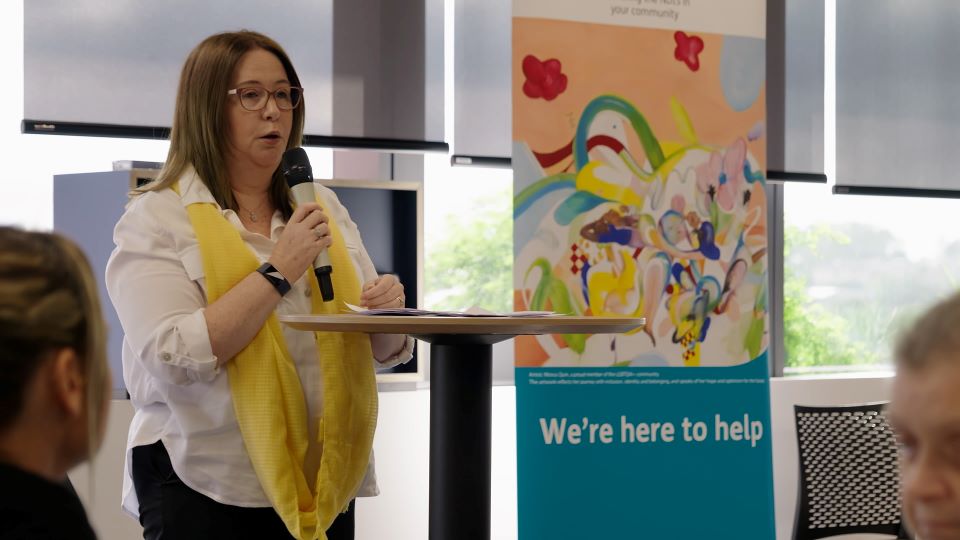
The event involved discussions on enhancing the economic participation of individuals with disabilities. Attendees, including government representatives, service providers, and advocacy groups, collaborated to identify effective strategies for recruiting and retaining individuals with disabilities in the workforce.
The working group provided invaluable feedback on key aspects of the symposium, including making the auditorium more accessible, encouraging presenters to provide visual descriptions of themselves for attendees with impaired vision, and even the running order of the day.
“To showcase the experiences of what people with disability go through in terms of employment, we brought [the lived experience panel] to be first… I think that really shaped the day in terms of how things were run,” said Michelle.
Michelle’s desire to amplify the concerns and stories of those with lived experience comes from a personal place.
“I have worked for organisations that weren’t flexible around my needs,” she said, shedding light on the barriers people with disabilities face right from the recruitment stage.
“The advertisements [for most jobs] say you need your licence… I don’t drive so that’s been a big issue in trying to find a job.”
The conversations at the symposium also emphasised that people with disability seeking self-employment should also not be left out of the picture. This was an important message for Michelle, whose role sees her mentoring people with disability to explore and pursue self-employment through entrepreneurship.
“[The symposium] highlighted for me the need for such a program as Ignite,” she said .
“No-one really considers that someone [with a disability] could actually run their own business, so I feel it’s a very valuable program.”
Whilst the symposium highlighted pathways for many critical conversations to be converted into actions, Michelle acknowledges that there is still much work to be done to promote inclusivity in the workplace.
“It’s just the beginning,” clarifies Michelle, who emphasises the need for greater education and awareness surrounding the experiences of people with disabilities.
“In a way, [it] filters down to perhaps why there isn’t change.”
The symposium’s working group underscores SSI’s commitment to advancing the role of people with disabilities in the organisation.
“That’s another way that SSI has been successful; providing opportunities for people,” Michelle said.
“I was proud that the working group made a significant difference on that day, and I also thought it was really great that we were acknowledged in terms of the work we did.”
Through initiatives like the symposium and dedicated programs, SSI is committed to fostering the needs and hopes of people with disability to help make workplaces stronger, and more inclusive.
For more information SSI’s disability services, visit our webpage. You can contact our Local Area Coordination team via the following methods:
Phone: 1800 960 975
Email: ssilac@ndis.gov.au
Innessa, singer/songwriter creating slavic inspired alternative folk, was selected to be part of SSI’s delegation at the Australian Women in Music Awards (AWMA) in 2023. A year on, she shared her journey, highlighting impactful moments and encouraging other aspiring musicians to seize this unique opportunity to apply to be part of this year’s SSI AWMA delegation.
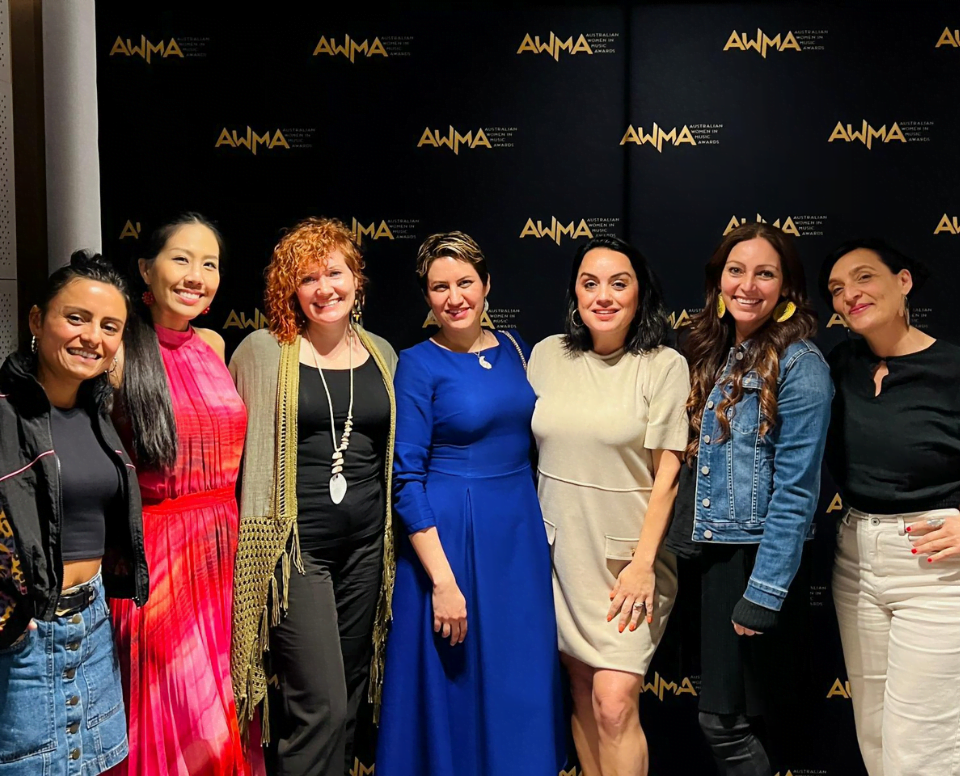
Award inspiration
“The AWMA awards night was a huge highlight – a culmination of the whole experience. Seeing acts of such high calibre, like Vanessa Amorosi, was so inspiring. I wanted to work on my art to be on that stage one day,” Innessa recalled.
“The black carpet on awards night made me feel like a star, a VIP for a moment, while the industry panels at the conference opened my eyes to new perspectives. I learned something valuable at each of the sessions.”
One of the great experiences for Innessa was the chance to meet new people and expand her network.
“Meeting other delegates and spending time with them was fantastic. I enjoyed hearing their stories and discovering common interests. I had a little jam session with one of the delegates, Peranya, and I hope to collaborate with her musically in the future,” she shared.
Innessa had clear goals going into the delegation, including getting inspiration for organising her own tour after AWMA and finding a mentor. “During the awards night, I ran into a few acquaintances and had the chance to discuss my music ideas and plans with them. Pauline Maudy was one of them. I asked her to be my mentor, and when she said yes, I was over the moon! In December, I was given a grant for Pauline to mentor me, and now we have a goal of getting me ready for an Australian national tour following my successful Queensland tour,” she said.
Bringing diverse artists together
Innessa emphasised the importance of supporting diverse musicians through initiatives like SSI’s delegation at the AWMA Awards.
“As someone who came from a different country, it’s tough to cut through the noise and promote myself. When I came to Australia, it was hard to start completely anew with no connections,” she explained.
Innessa’s musical journey began at eight in Russia with a passion for poetry. By 16, she was performing original songs, blending her poetry, vocals, and guitar skills. After university, she traveled the world with her guitar, exploring music in the Black Sea, Egypt, Spain, and the USA. Now based in Australia, she has released four studio albums, performed at major festivals, and had two songs selected as finalists in the Queensland Music Awards.
Innessa acknowledged that balancing family responsibilities, university studies, and a music career is a challenge, but the support from the delegation experience at AWMA helped her regain her drive, focus and confidence to ‘put herself out there’.
“For female artists who come from different countries, it’s really helpful when you get support promoting yourself. My original music is not traditional folk or commercial pop, so finding where I fit can be a struggle,” she shared.
The delegation provided a space for diverse musicians from all backgrounds and music professions to find a place of belonging and connect with others on similar paths.
“I don’t know why anyone would be unsure about applying for this opportunity where you get to come to awesome workshops and events and connect. Why wouldn’t you apply?” Innessa encouraged.
“You won’t lose anything by applying, and you might get the chance to be part of something special.”
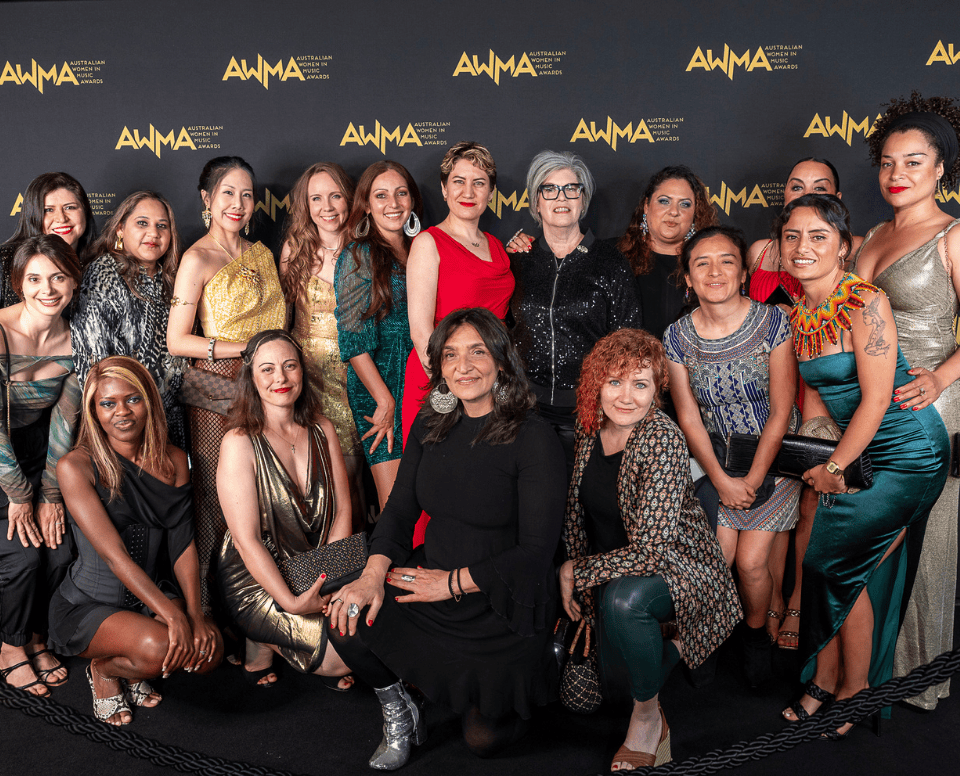
Supplied by AWMA. Photo credit: Elouise Van Reit-Gray
How to apply
For emerging, diverse female musicians, the delegation experience offers a unique chance to learn, grow, and connect with Australia’s top music talent.
Applications to be part of SSI’s next delegation are now open and close at midnight on 18 August. We welcome applications from emerging, female-identifying, or non-binary artists from diverse cultural backgrounds in NSW and Queensland.
Apply using this form, which gives more details on what’s included and who can apply.
PRONIA, SydWest Multicultural Services and Settlement Services International establish an alliance with RMIT University to link students with diverse communities.
A first-of-its-kind community co-design consortium, launched last week, will give RMIT engineering students the opportunity to shift the dial on some of the big challenges facing culturally and linguistically diverse communities in Australia.
Working at the intersection of engineering practice and community-led collaboration, the RMIT Humanitarian Engineering Research Consortium/Understanding and Leveraging Engineering with Society, or HERCULES for short, ensures students learn the fundamentals of engineering by solving real-world challenges through genuine engagement with culturally and linguistically diverse communities via not-for-profit organisations.
Last week, first year mechanical engineering student, Tahlia Torcasio presented four humanitarian-design prototype finalists to an audience of community leaders and RMIT University academics who comprise the first-of-its-kind community co-design consortium.
“My fellow humanitarian engineering students and I are motivated by the drive to move the needle on some of society’s most challenging problems, and being part of HERCULES will be a game changer for our education. Engaging with community via human service organisation to co-design solutions is a win-win for our understanding and community impact,” said Ms Torcasio.
Dr. Spyros Schismenos, lecturer in Humanitarian Engineering is the co-leader of RMIT’s Humanitarian Engineering Lab who’s passionate about the advancement of innovative teaching and research at the intersection of human-centered design, technology, and experiential learning.
“By forging alliances with organisations working at the coalface of complex social and human challenges such as Sydney’s Sydwest Multicultural Services, Melbourne’s PRONIA and national Settlement Services International, we will ensure students design solutions with, not just for, people,” explained Schismenos
The students’ prototypes ranged from a sustainable pest-resistant bamboo house designed for extended family lifestyles, to a sun-tracking solar panel built to be accessed by multiple households. The prototypes were created by a winning team of 18 first-year students in response to community consultation and as part of the RMIT SydWest Engagement Challenge.
The RMIT SydWest Engagement Challenge attracts more than 1000 students enrolled in RMIT’s Introduction to Professional Engineering Practice and guides students on community engagement and co-design practice, giving students first-hand experience to understand and work with Australia’s culturally and linguistically diverse communities.
Quotes:
Violet Roumeliotis, CEO, Settlement Services International (SSI)
SSI CEO Violet Roumeliotis said the partnership demonstrates a shared commitment to empowering engineering students and supporting communities to co-design solutions to some of our most pressing challenges.
“Diverse communities face numerous challenges, often punctuated by inequality and lack of opportunity afforded to other sectors of society. SSI supports refugees, people seeking asylum, culturally and linguistically diverse communities, people living with disability, Aboriginal and Torres Straits Islander communities, women, youth, families and LGBTIQA+ communities.
By working with RMIT University and HERCULES consortium partners, we’ll provide a unique engagement experience that supports students in their educational pursuits and helps communities co-create place-based solutions,” she said.
Elfa Moraitakis, CEO, SydWest Multicultural Services
SydWest Multicultural Services CEO, Elfa Moraitakis said the impetus to join the HERCULES consortium grew from the students’ response to the RMIT SydWest Engagement Challenge where she saw first-hand the impact of collaboration that comes from genuine engagement.
“Working from a strength-based perspective enables individuals and communities to provide insights and solutions to the challenges impacting them. This approach enables students to develop these skills early in their career and to design engineering solutions with the end-user in mind.
“The Western Sydney region is a diverse and vibrant area with a mix of unique challenges and creative insights and perspectives providing students with a rich learning ground,” said Moraitakis.
Nikki Efremidis, Interim CEO, PRONIA
PRONIA Interim CEO, Nikki Efremidis is passionate about identifying interventions for some of Australia’s priority communities and co-creating solutions for pressing real-world social and humanitarian issues.
“It’s a wonderful initiative to bring like-minded community organisations together to build a consortium that will harness ideas and opportunities to help students to combine engineering practice with social engagement skills.
“The humanitarian engineering program, through Dr Schismenos, who also works with UNESCO, will bring a unique perspective to community collaboration and co-design on topics that put community at the heart of innovation,” said Efremidis.
For more information on RMIT University Humanitarian Enginneering course visit https://www.rmit.edu.au/about/schools-colleges/engineering/news/humanitarian-engineering
Findings from a once-in-a-generation review released yesterday set a progressive vision for multicultural Australia, according to non-profit organisation, Settlement Services International (SSI).
SSI welcomed the release of the Multicultural Framework Review, Towards Fairness: A multicultural Australia for all, which drew on the voices of thousands of Australians to undertake the first comprehensive review of multicultural policy in Australia in more than 50 years.
SSI CEO Violet Roumeliotis said multiculturalism was a core part of Australia’s national identity and while multiculturalism as a policy had evolved from strong foundations, it needed a reset to advance a multicultural Australia.
“We commend both the Federal Government and the review panel for delivering this comprehensive roadmap that will build on Australia’s strong multicultural foundations,” she said.
“It has been decades since we’ve seen a review of this nature. If implemented, these changes would offer a reset so that multiculturalism and multicultural policy reflect the Australia of this century, not the last.”
Ms Roumeliotis said it was particularly heartening to see this review acknowledge the need to work to strengthen multicultural communities’ understanding of and engagement with First Nations communities.
“The report reflects a modern, nuanced understanding of what multiculturalism means in 2024 and beyond, with a clear national framework and a proposed set of reforms at the Ministerial and departmental levels to support implementation including the establishment of an Australian Multicultural Commission.”
In December 2023, SSI was part of joint advocacy led by the Federation of Ethnic Communities’ Councils of Australia and more than 80 other community organisations that recommended these changes so that multicultural Australia is fit for purpose for the 21st century.
Ms Roumeliotis said SSI welcomed, among other things, the review’s recommendations on strengthening support for refugees with disability through the establishment of a formalised partnership between NDIS and the Department of Home Affairs.
The report also recommended changes to bridge the digital divide for multicultural communities to create culturally responsive digital infrastructure, which is especially important to improve access to essential services that we all rely on in times of need.
“It was particularly heartening to see a strong focus on integrating lived experience and ensuring the voices of multicultural Australia are involved in the co-design and development of these initiatives,” she said.
SSI looks forward to working with the Federal Government, communities and our peers in the community sector to implement this progressive vision.
Last month, members of the NSW Settlement Partnership gathered in Sydney to celebrate nine years of shared achievements, as the consortium comes to an end.
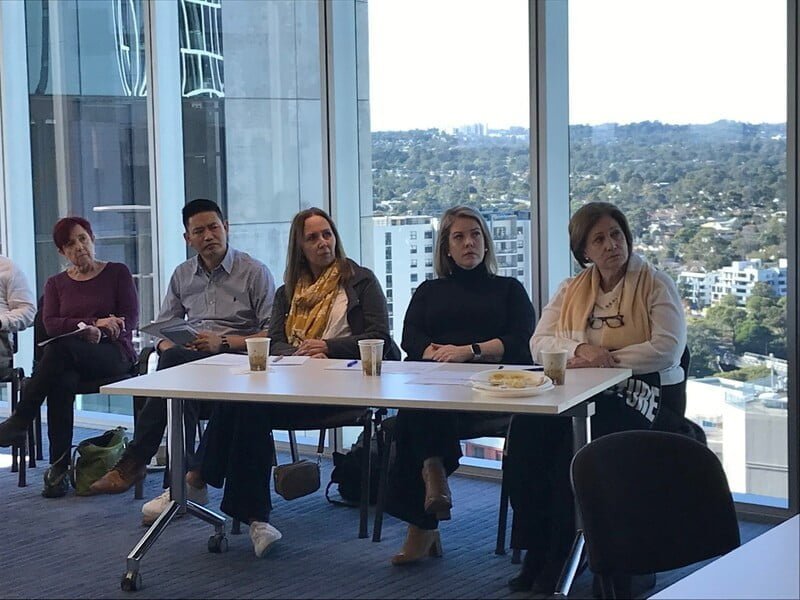
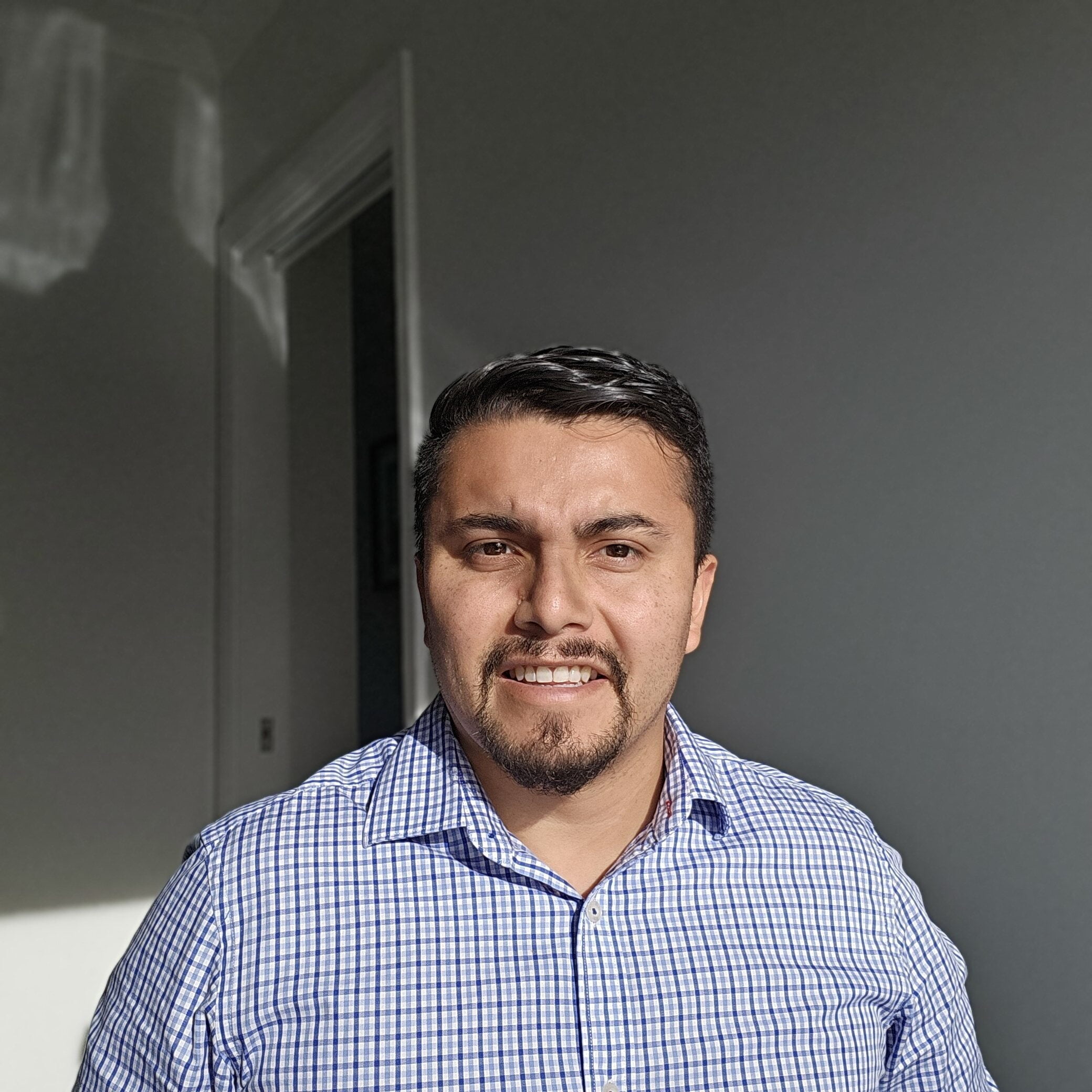
“I follow the mantra that living is about giving. That’s the joy of this work. It can be as simple as playing music for an elderly person and seeing their face light up as their favourite song comes through the speaker,” said Jose Miranda Garcia.
This philosophy of putting people first is at the heart of Jose’s work as SSI’s Business Relationship Lead. He and his team are the bridge between 920 aged care providers across NSW, the ACT and the Home Care Workforce Support Program (HCWSP).
Jose migrated to Australia as a young refugee from El Salvador. Since then, he has been motivated by one simple question – how do I give back to the community and help people in need?
“I’ve always wanted to work in the community sector and be able to make a difference in meaningful ways,” said Jose.
His role now allows him to direct his skills in IT, recruitment and business development towards impact within the aged care sector.
“The first three things I think about is how do we make something faster, more efficient and more effective for the people involved,” he said.
Jose and his team recently led the development of a refined candidate matching algorithm – a CRM system that matches care workers to clients based on skills, needs, languages and backgrounds. Its aim? To make sure the right carers are placed with the right clients.
“The algorithm essentially gives providers a more tailored match of participants,” Jose said. “It cuts down processing time from 10 days to 72 hours, and more importantly, factors in cultural contexts.”
He continued, “For example, if we have an elderly person who speaks Arabic, we can now match them with a care worker from their local government area who speaks Arabic too. The worker will understand their culture and can make them feel respected, appreciated and acknowledged for their cultural norms and beliefs.”
For Jose, the new system is a win-win situation for the community, for the government, and for each person needing care.
Leading its creation has been one of many rewarding aspects of his role with SSI. Beyond this, he continues to find fulfillment in seeing his team grow, flourish and realise the impact their work can have.
“Once you connect your work to your why and your purpose, that’s the most rewarding part,” said Jose.
“We’re helping to fill a lot of recruitment gaps, assisting with retention, and building the capabilities of people within the Aged Care Market which is urgently needed at the moment. We also are supporting aged care providers and new people who are interested in joining the Aged Care Workforce. We essentially do the groundwork in the recruitment process to make the recruitment process as smooth and seamless as possible for new entrants and Aged Care Providers.”
Beyond getting people into aged care roles, a key focus of the HCWSP is removing barriers to joining the workforce. Jose and his team are constantly looking for the best ways to open more opportunities within the aged care sector.
“Everyone has had an elderly person in their life at some point. There’s a heartwarming experience in being able to take care of someone who needs that help,” Jose said.
As his role grows, Jose hopes he can continue supporting the aged care sector across a whole range of initiatives.
“It’s a growing industry that’s only going to get bigger, and within that, every connection is making a difference.”
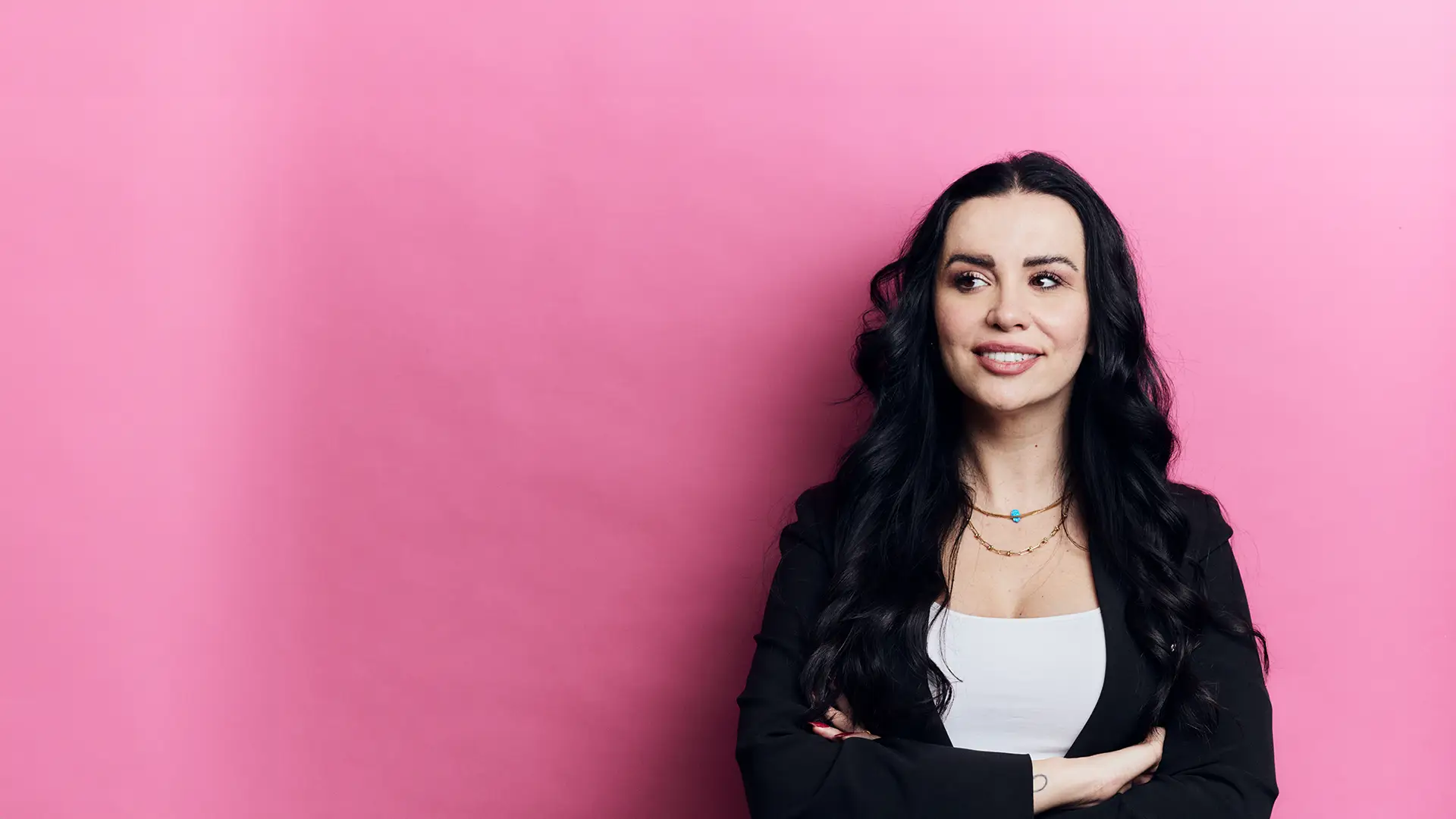
A passionate storyteller and social activist, Dima brought an impressive career history to her new home in Australia and plans to continue her work in helping solve challenges faced by migrants and refugees.
“Everyone has a story worth telling. Bringing people’s stories to life has been my passion and vision of choice since I learned to talk. I strongly believe in the transformative power of journalism to bring about positive change in the world. Even if it’s a small change, I will always grasp it to try to make our world a better place,” Dima reflected.
Dima graduated with a degree in Journalism from Damascus University in 2014. Since then, she has built a versatile, decade-long career in journalism, working as a radio show host, editor-in-chief, and BBC Extra reporter covering the Syrian war. She also founded her own social media and marketing consultancy.
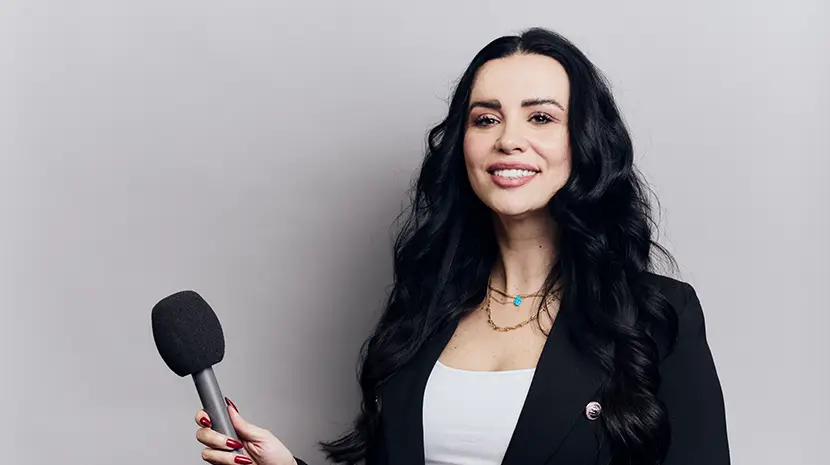
Originally from Syria, Dima arrived in Australia in 2023 from Iraq where she had been living with her two brothers for two years after fleeing the war.
“I was excited to start my new journey in Australia. From the moment we arrived, SSI’s team guided us through how to set up our new life here, including opening bank accounts, accessing Medicare, and getting settled in a house. They also helped me update my CV and cover letter to align with Australian standards,” Dima recounted.
Dima’s ambition, tenacity, and preparation have always driven her career success, allowing her to land her dream job in record time. “Before arriving in Australia, I aspired to work for SBS Australia because I could see myself there as a journalist and content producer. I started following the organisation and keeping an eye out for any vacancies,” she said.
Just four months after arriving, a job opportunity for a Digital Producer role opened at SBS. She applied and was offered the position.
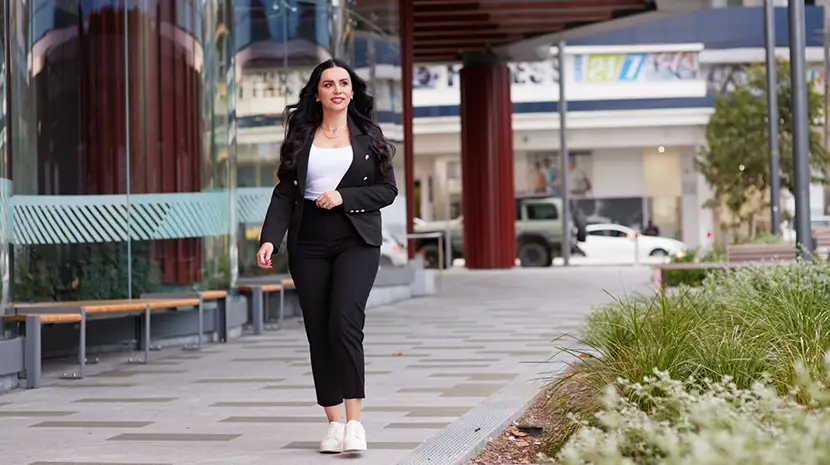
“The best way to reach people in this new era is as a digital producer, through digital platforms. I can create stories, videos, and audio, as well as present and host. It’s an open space for me, I believe I have what it takes to achieve a more significant impact on humanity, and I want to continue working on this in Australia,” Dima said.
“I found my dream job, but believe me, it’s not always easy. As a new immigrant, I am learning about Australia with our audience and my team! In my work, I often introduce Australia to our audience, by explaining Australia’s culture, news, and history. My work makes me learn quicker, personally and as a journalist. It’s a great learning journey,” she reflected.
Dima considers herself lucky compared to other professional refugees who must go through stricter processes to land a job that matches their skills and expertise. In fact, Dima’s brother is a doctor and despite passing the required medical exams and applying for hundreds of jobs, he hasn’t been able to secure a placement yet.
While there are many obstacles refugees face when trying to land their dream role in a new country, Dima’s experiences show preparation can make the journey smoother.
“If you plan ahead and come prepared, life becomes easier. In almost all cases, this involves improving your English, as communication is key. Even before coming to Australia, I began working on my English, and I am still working on it.”
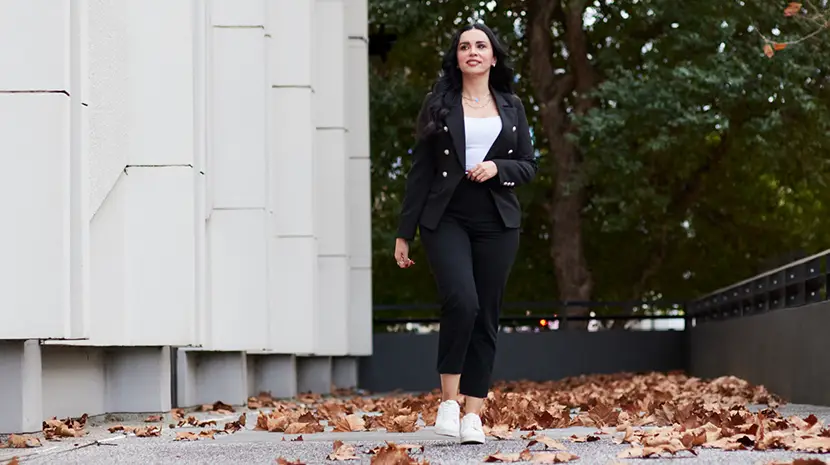
On the other hand, some obstacles can only be overcome if Australian employers do their part.
“How can we gain Australian work experience as newcomers if we aren’t given a chance? We deserve an opportunity to showcase our skills and expertise that we brought with us rather than being immediately rejected.”
Dima now dreams of exploring the world once she gets her Australian passport. “I have always wanted to travel and discover the world, but unfortunately, with a Syrian passport, it is just not possible. I can’t wait to go to Europe to visit my friends and explore new cultures.”
Learn how you can get involved and support refugees shape their own path this Refugee Week. Find out more about our campaign and events near you.
Join the campaign to break down barriers so skilled refugees and migrants can work in their fields of expertise and contribute billions to Australia’s economy. Learn more about our Billion Dollar Benefit campaign.
We are calling for urgent action to lift Australia’s humanitarian intake, as new research from United Nations High Commissioner for Refugees (UNHCR) shows the number of people experiencing forced displacement increased at a record-breaking rate in 2023.
The UNHCR’s Global Trends: Forced Displacement in 2023 has found that more than 117 million people were forcibly displaced by violence, conflict, and persecution in 2023 – up by almost 9 million people from the prior year.
Forced displacement is estimated to have continued rising in the first four months of 2024, likely surpassing 120 million by the end of April.
For the past 12 years, the UNHCR has recorded annual increases in forced displacement, with each year setting a new record.
This record-breaking displacement highlights the need for the Australian government to uplift the humanitarian intake to respond to pressing global need.
We are calling on the Australian government to meet its commitment to increase the humanitarian intake from 20,000 places to 27,000 places per annum.
Despite the rapidly growing need for resettlement places, the size of Australia’s Humanitarian Program had remained relatively stagnant for decades.
Scaling up the program would help address the significant global shortfall in resettlement places, reunite refugees already in Australia with their families, and showcase Australia’s commitment to being a responsible global citizen.
There is also widespread recognition globally of the need for a range of permanent and secure pathways for the growing numbers of refugees around the world. This includes complementary pathways such as community sponsorship. It is an innovative solution that enables everyday community members to step up to protect people displaced by conflict and persecution.
Australia’s refugee resettlement sector has the skills and expertise to quickly scale up and support an increased refugee intake. We simply ask the government to open the door.
Read the UNHCR’s full report here: https://www.unhcr.org/global-trends
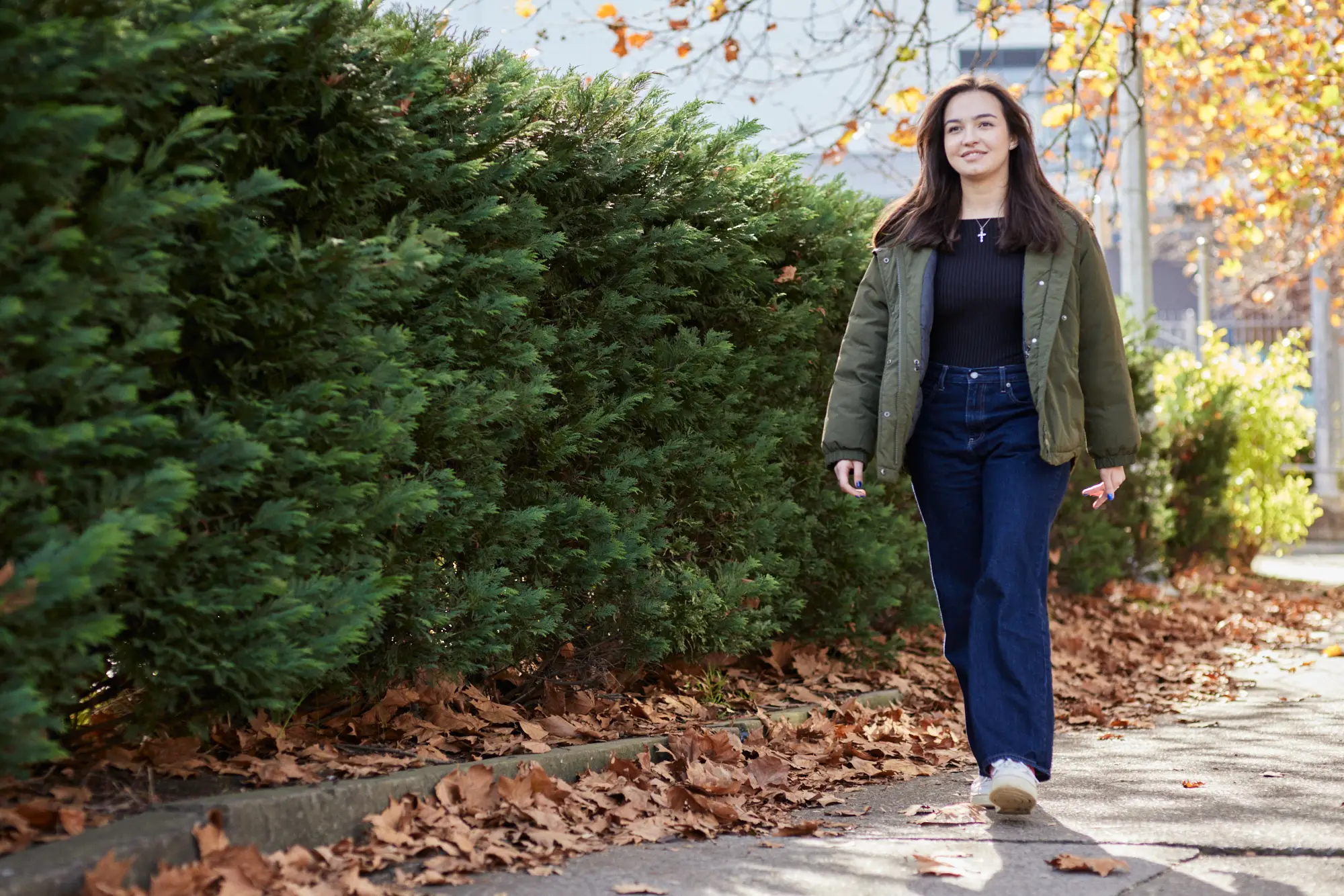
23-year-old Anastasiia (Ana) is wise beyond her years. Originally from Ukraine, Ana is forging a passionate life for herself, working in her dream job in Australia – but it hasn’t been without challenges.
Ana left Ukraine in 2022 at the start of the Russian invasion. She left behind her parents, and a mother who was firm in her resolve to give Ana the opportunities she deserved.
Armed with youthful confidence, and partway through a bachelor’s degree in international law, Ana was determined to make the most of her education and experience in her new city of Sydney despite the challenging circumstances.
“At one point I was homeless and jobless. I couldn’t plan – there is no planning ahead in this situation – you are just grabbing chances by their tail,” Ana recalled.
Like many new arrivals who receive initial housing and support, there are obstacles to overcome before many individuals and families can find permanent security or the freedom to live life to the fullest.
It was a gruelling year as Ana faced the daunting task of searching for permanent work and accommodation in a new country, largely alone.
After an uninspiring administration role at a law firm, Ana was left walking around Sydney city handing her resume out to cafés and shops.
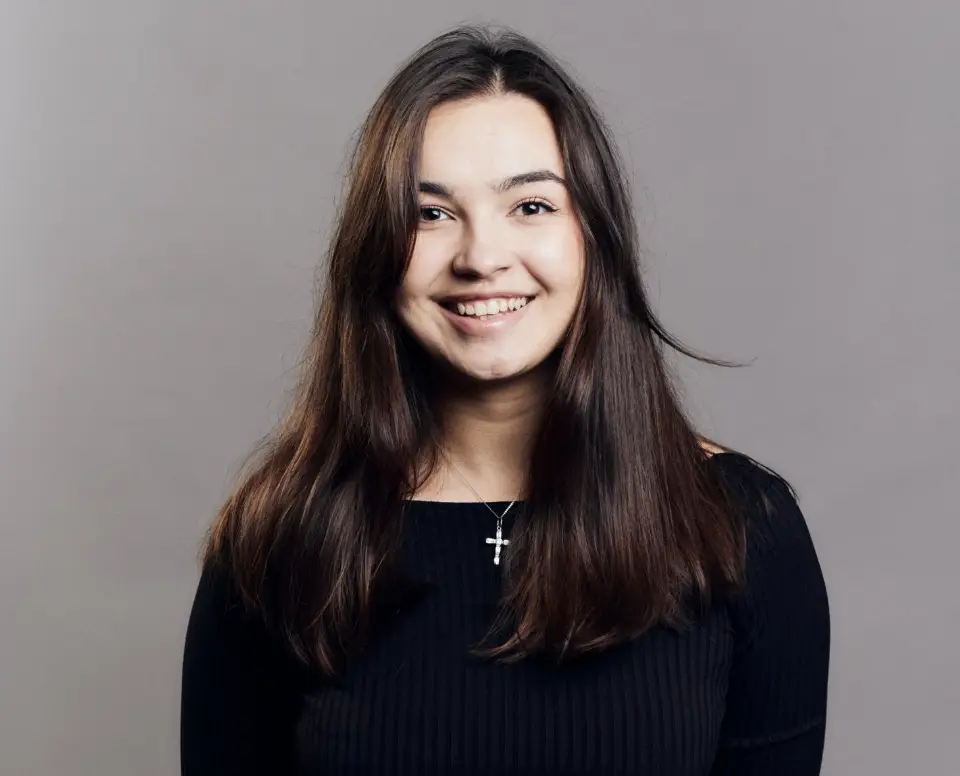
“I remember giving my last CV out, and as I walked out of the café, I burst into tears. It was at that point I remembered my faith and the conversation I’d had with God, and I knew then that I didn’t need to worry. He would give me my daily bread. This is why I have such strong faith,” she said.
Fate, faith, or both led her into a music shop, and to a new employer.
“The record shop owner listened to my story and gave me a job. I worked weekends there while finishing my degree. I dearly loved that job. I met a lot of incredible people, but at some point, I knew I had healed and needed to move on.”
Ana was intent on finding a job that meant something to her. Many new arrivals are often in similar circumstances and looking for a chance to utilise their overseas skillset to lead fulfilling careers.
After a temporary job in a publishing house, fate called again, this time in the form of her SSI caseworker. A job opportunity had opened at SSI’s Immediate Services team, which led Ana to her dream job as a support worker for new arrivals. Her current role focuses on providing essential living supplies, housing and support to new arrivals in their first moments in Australia.
“This is my place. This is my team. I love it. I realised that giving back to people – this is my type of environment. I am not a businessperson; I am a person of passion. I’m fighting for the idea. I’m standing for the idea,” Ana said.
It’s been the experience in this role that led Ana to the realisation that her passion was in giving back to others, and genuinely helping people in need rather than pursuing a high-flying corporate career.
“Money will come and go, but it’s not important to me. In this role, I’m delivering real support for people.”
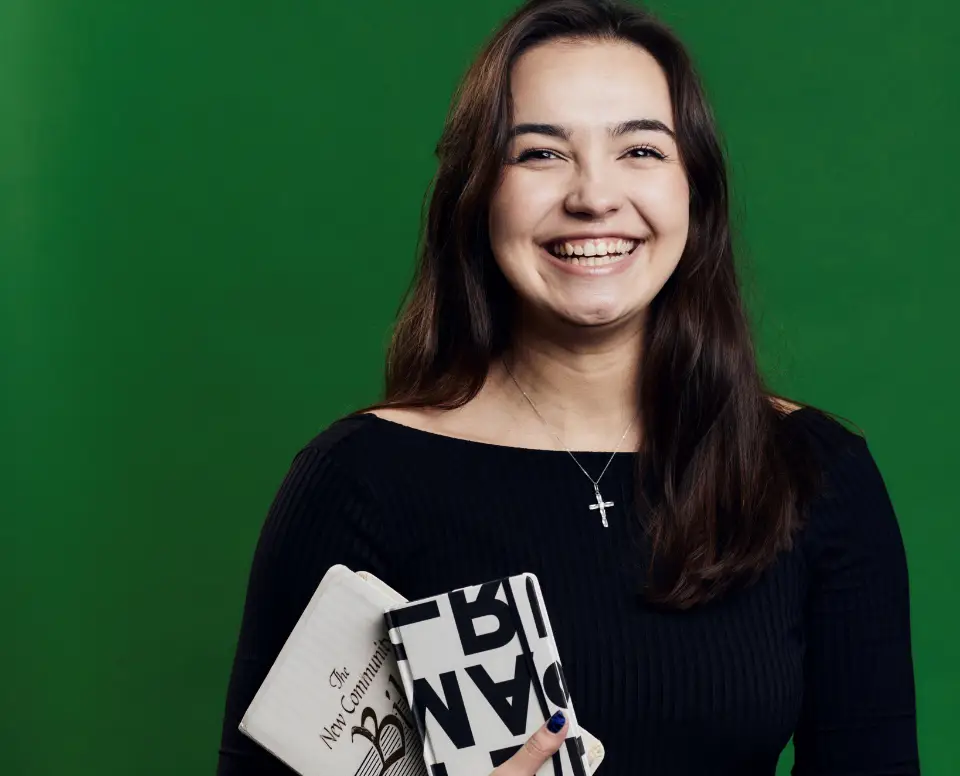
Her job security has also enabled her to support family still living in Ukraine.
“Supporting my family brings me so much joy. I sacrifice some privileges and needs but helping them is crucial because of the circumstances in Ukraine. My mum sacrificed a lot for me, so I am happy to be able to give back to her with love and grace.”
As for Ana’s future, there are many important experiences on the horizon, including further studies and travel, and perhaps even a homecoming one day.
“There will be a moment when I need to go back home, to create something that will change people’s lives. It’s not a coincidence that I ended up in one of the best countries in the world with the opportunities and career growth I have had. I can’t waste it on a peaceful life – I will go back into the fire as soon as I am strong enough.”
When reflecting on the jobs and experiences Ana has had in Australia, her advice to employers is clear: “Give chances to refugees. Don’t look at the person just on paper – have the discernment to see the inner person. Believe in that person and have faith in that person. It’s about having human insight, compassion and faith, and keeping an open mind.”
“And for refugees and those in the same position I was in – don’t lock yourself up. Build your life here, dive into the culture. Push through the walls, knock down the doors and they will open. Find and ask, and it will be given.”
